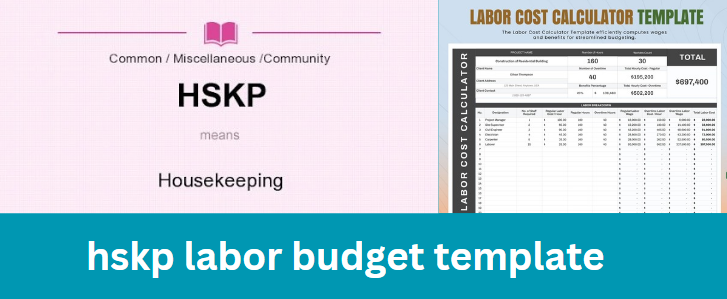In the world of academia, assessments and reassessments are crucial processes that determine a student’s academic standing, progression, and overall performance. For students at the University of Salford, the topic of reassessment and whether these are capped is one of interest and sometimes concern. The key question—“are reassessments capped at Salford?”—directly affects how reassessment results contribute to final grades and, ultimately, how they shape academic outcomes.
This article explores the reassessment policy at Salford in depth, particularly focusing on the capping of reassessment marks, how it affects undergraduate and postgraduate students, the reasons behind this policy, and its impact on academic performance. Additionally, it will address FAQs, providing students with a comprehensive understanding of what reassessment capping means and how to navigate it effectively.
Contents
- 1 Understanding the Reassessment Policy at Salford
- 2 Detailed Overview of Reassessment Capping for Different Academic Levels
- 3 Implications of Reassessment Capping on Academic Performance
- 4 Strategies for Students to Excel Despite Reassessment Capping
- 5 FAQs on “Are Reassessments Capped at Salford?”
- 6 Conclusion: Navigating Reassessment Capping at Salford
- 7 Related Posts Like Are Reassessments Capped at Salford
Understanding the Reassessment Policy at Salford

Reassessment is a process where students who do not meet the required pass marks on their initial assessments have an opportunity to reattempt specific coursework or exams. However, the results of these reassessments are not always treated in the same way as initial assessments.
At the University of Salford, there is a standard policy in place: reassessment marks are capped at the pass mark. This means that regardless of a student’s actual performance on the reassessment, their grade will be limited to a maximum mark of 40 for undergraduate courses and 50 for postgraduate courses, representing the minimum passing grade.
Why Are Reassessments Capped?
The rationale behind capping reassessment marks is rooted in a few fundamental academic principles:
- Encouraging Initial Academic Performance: By capping reassessments, universities aim to incentivize students to perform well on their first attempt, emphasizing the importance of adequate preparation and time management.
- Maintaining Academic Standards: A capped reassessment ensures that all students adhere to the same academic standards, recognizing that a reassessment is a second chance, not an equivalent opportunity to a first attempt.
- Consistency Across Institutions: Capping reassessment marks is a common practice across many UK universities, not just Salford. It establishes a standardized approach that treats all students fairly, regardless of where they study.
Detailed Overview of Reassessment Capping for Different Academic Levels
Undergraduate Reassessment Capping
For undergraduate students, reassessment marks are capped at 40%. This is the minimum pass mark required to meet Salford’s academic requirements. For instance, if an undergraduate student scores 70% on a reassessment, their official grade for that assessment would be capped at 40%.
How It Affects Undergraduate Grading
- Impact on Final Grades: If a module comprises both initial assessments and reassessments, the capped reassessment marks can limit the overall grade a student achieves in that module.
- Repercussions on Degree Classification: Since only capped marks are considered for reassessments, students may find it more challenging to achieve high overall scores, which can influence their final degree classification (e.g., achieving a First or Upper Second-Class degree).
- Second Chances with Limits: While capping may seem restrictive, it does provide students with a clear understanding of the maximum achievable mark. It also ensures fairness for those who passed on the first attempt without needing reassessment.
Postgraduate Reassessment Capping
For postgraduate students, the reassessment pass mark is capped at 50%. This aligns with the higher academic standards expected at the postgraduate level. Consequently, students pursuing a master’s or doctoral degree will have their reassessment marks capped at this level, regardless of their actual performance.
Implications for Postgraduate Grading
- Influence on GPA: Postgraduate programs often have higher GPA expectations, and capped reassessment marks can affect students’ overall GPA if multiple reassessments are needed.
- Final Degree Outcome: Similar to undergraduates, the capped marks on reassessment may restrict a student’s ability to achieve top classifications, impacting merit-based awards and distinctions.
Implications of Reassessment Capping on Academic Performance

The policy of capping reassessments has significant implications for students’ academic trajectories. Below are some of the key areas where students may feel the impact:
1. Limitations on Grade Improvement
When reassessments are capped, students face a ceiling on how much they can improve their grades. This limitation is a significant factor in modules where reassessment opportunities are frequently utilized. Students must recognize that while reassessment offers a second chance, it does not provide an unrestricted opportunity for improvement.
2. Academic Motivation and Morale
For students who may have struggled on initial assessments, the knowledge that their reassessment marks are capped can impact their morale and motivation. However, the intent behind capping is not punitive; instead, it is to ensure that students focus on mastering content rather than relying on multiple attempts.
3. Degree Classification and Career Prospects
Capped reassessment marks can impact degree classifications, which in turn affect future academic and career opportunities. Employers and further educational institutions often take degree classifications into account, and capped reassessment marks may limit some students’ eligibility for top-tier classifications.
4. Fairness and Academic Integrity
The University of Salford’s reassessment capping policy upholds academic integrity by maintaining a fair approach to grading. It levels the playing field by ensuring that students who pass on the first attempt are not disadvantaged by others who might achieve high marks after multiple attempts.
Strategies for Students to Excel Despite Reassessment Capping

To navigate the reassessment policy effectively, students can employ the following strategies:
1. Focus on Initial Assessment Preparation
Given the limitations imposed by capped reassessments, it is essential for students to prioritize performing well on initial assessments. Building a structured study plan, seeking help from tutors, and utilizing academic resources are crucial steps to avoid the need for reassessment.
2. Seek Feedback on Performance
Understanding where you went wrong on the first attempt can be incredibly valuable. Salford offers students the opportunity to discuss feedback with professors or advisors, allowing them to gain insight into how they can improve their performance in future assessments.
3. Utilize University Support Services
Salford offers various support services, including academic counseling and tutoring. These resources are available to help students strengthen their skills, address weaknesses, and build confidence, ensuring they are better prepared for assessments.
4. Practice Self-Assessment Techniques
Using past papers, mock exams, and self-quizzing can be highly effective for students. These practices reinforce understanding and allow students to self-assess their knowledge and readiness for exams, thereby reducing the likelihood of needing reassessment.
5. Engage in Study Groups
Collaborating with peers in study groups can provide additional insights into challenging topics. Group discussions can enhance understanding, and explaining concepts to peers is a proven way to reinforce knowledge and boost academic confidence.
FAQs on “Are Reassessments Capped at Salford?”
1. Are reassessments capped at Salford?
Yes, reassessment marks are capped at the pass mark: 40% for undergraduate students and 50% for postgraduate students.
2. Why does Salford cap reassessment marks?
Capping reassessment marks incentivizes students to prepare thoroughly for their initial assessments, maintains fairness among students, and upholds academic standards.
3. How does reassessment capping affect my final degree classification?
Capped reassessment marks can lower your overall module scores, which may impact your final degree classification, especially if multiple reassessments are needed.
4. Can I appeal the capping of my reassessment mark?
Typically, reassessment capping is a standard policy and is not open to appeal. However, exceptions may apply in cases where extenuating circumstances are documented and verified.
5. What resources are available to help me avoid reassessment?
Salford offers academic support services, including tutoring, study workshops, and counseling, to help students succeed on their initial assessments.
The reassessment capping policy at the University of Salford serves as both a motivator and a means of maintaining academic standards. While reassessments offer students a valuable second chance, the cap at the pass mark reinforces the importance of initial assessment performance. Students at Salford are encouraged to maximize their study efforts, seek support when needed, and use effective learning strategies to reduce the likelihood of needing reassessment.
By understanding the nuances of reassessment capping and its implications, students can make informed decisions, excel in their studies, and reach their academic goals at Salford. Whether preparing for undergraduate or postgraduate assessments, a proactive approach to academic success remains the best strategy.
Related Posts Like Are Reassessments Capped at Salford
Traveling from 68 Tetz Rd Chester NY to 2601 Sedgwick Ave: Detailed Guide
Annie Dolce and ThinkFoodGroup: Transforming Culinary Experiences





















+ There are no comments
Add yours